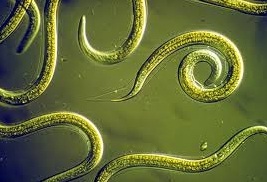- Home
- Editorial
- News
- Practice Guidelines
- Anesthesiology Guidelines
- Cancer Guidelines
- Cardiac Sciences Guidelines
- Critical Care Guidelines
- Dentistry Guidelines
- Dermatology Guidelines
- Diabetes and Endo Guidelines
- Diagnostics Guidelines
- ENT Guidelines
- Featured Practice Guidelines
- Gastroenterology Guidelines
- Geriatrics Guidelines
- Medicine Guidelines
- Nephrology Guidelines
- Neurosciences Guidelines
- Obs and Gynae Guidelines
- Ophthalmology Guidelines
- Orthopaedics Guidelines
- Paediatrics Guidelines
- Psychiatry Guidelines
- Pulmonology Guidelines
- Radiology Guidelines
- Surgery Guidelines
- Urology Guidelines
Roundworm infestation causes small bowel obstruction in child: Case report

Dr Clarence Mvalo Mbanga, and colleagues at Mankon Sub Divisional Hospital, Bamenda, Cameroon have reported a case of small bowel obstruction in a 4-year-old male due to roundworm infestation. The case has appeared in the Journal of Medical Case Reports.
Ascariasis is the leading helminthic infection worldwide, with its peak prevalence noted in children aged 2–10 years. Although mainly asymptomatic, a chronic and heavy infestation could lead to severe complications such as malnutrition, poor physical and cognitive development, as well as intestinal obstruction.
A 4-year-old Black African boy from the Menchum Division in the Northwest Region of Cameroon, with no history of deworming since birth, presented with a 3-day history of generalized abdominal pains, vomiting and obstipation, and abdominal distention evolving over a period of 6 months. Clinical and paraclinical findings were in favour of a subacute intestinal occlusion associated with an electrolyte imbalance. An exploratory laparotomy was done after correction of the electrolyte imbalance. Perioperative findings revealed a dilated small bowel obstructed by bundles of live worms. An enterotomy of 2 cm in length was done, and the bundles of Ascaris lumbricoides worms extracted manually and by milking through the stoma. His postoperative period was unremarkable, and he was discharged on postoperative day 7. He and his entire household were dewormed with a single dose of mebendazole 500 mg administered orally. A follow-up visit 1 week after discharge revealed a healed abdominal wound and normal bowel functions.
Despite considerable progress made on the control of soil-transmitted helminthiasis in Cameroon, the program faces a number of bottlenecks. Funding is inadequate, making data acquisition and hence remapping of high-risk zones difficult. Accessibility to enclaved zones where most high-risk children live is difficult, while community sensitization on soil-transmitted helminthiasis and proper education on the right environmental hygienic practices are lacking. All these challenges once addressed could go a long way to help achieve recently set sustainable development goals.
For further reference log on to :
https://doi.org/10.1186/s13256-019-2103-y

Disclaimer: This site is primarily intended for healthcare professionals. Any content/information on this website does not replace the advice of medical and/or health professionals and should not be construed as medical/diagnostic advice/endorsement or prescription. Use of this site is subject to our terms of use, privacy policy, advertisement policy. © 2020 Minerva Medical Treatment Pvt Ltd